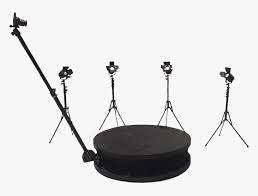
Navigating Retirement: Key Considerations for a Comfortable Future
Getting a grip on your finances isn’t rocket science, but it does require a bit of effort and foresight. With the right approach, Budgeting is a smooth and rewarding process that can give you a sense of control over your money. Budgeting helps you cut your expenses, save for your goals, pay off debts, and maintain a healthy financial position. In this article, we’ll cover the basics of Budgeting and provide you with practical tips and tools to help you take control of your finances.
1. Define your financial goals
Before you start Financial Planning, consider your financial goals. What do you want to achieve with your money? Do you want to pay off your debts, start a savings account, or plan for a big purchase? Once you have a clear picture of your goals, you can align your expenses with your priorities. Set realistic and specific goals that are measurable and time-bound.
2. Track your income and expenses
The next step is to track your income and expenses. Keep a record of all your sources of income, including your salary, bonuses, side hustles, and investment returns. Then, record all your expenses, from your rent and utilities to your groceries, entertainment, and debt payments. You can use a spreadsheet, an app, or a notebook to track your transactions. This will give you a clear idea of how much money you have coming in and going out.
3. Allocate your income to categories
Based on your income and expenses, you can allocate your money to different categories. The most common categories are housing, food, transportation, entertainment, debt payments, and savings. Assign a percentage or a fixed amount to each category, according to your priorities and goals. For example, you may want to allocate 30% of your income to housing, 15% to food, 10% to transportation, 5% to entertainment, 20% to debt payments, and 20% to savings.
4. Cut your expenses
If your expenses exceed your income, or if you want to save more money, you need to cut your expenses. Look for ways to reduce your fixed expenses, such as rent, utilities, and insurance. You may negotiate with your providers, switch to a cheaper plan, or find alternative providers. Also, try to cut your variable expenses, such as groceries, entertainment, and shopping. You may reduce your frequency, quantity, or quality, or find cheaper alternatives. Cutting your expenses may require some sacrifices, but it can bring significant savings in the long run.
5. Monitor your budget and adjust as necessary
Budgeting isn’t a one-time activity; it’s an ongoing process. You need to monitor your budget regularly and adjust it as necessary. Check your expenses and income against your categories and goals, and see if you’re on track or overspending. If you notice any discrepancies or unexpected expenses, adjust your budget accordingly. Also, review your goals periodically and see if you need to change your priorities or timelines.
In short:
Budgeting may seem daunting at first, but it’s a valuable skill that can help you achieve your financial goals and build a secure future. By defining your goals, tracking your income and expenses, allocating your income to categories, cutting your expenses, and monitoring your budget, you can take control of your finances and make the most of your money. Remember, Budgeting is about making smart choices, not about depriving yourself. You can still enjoy your life and pursue your dreams while staying financially responsible. Start Budgeting today and see the difference it makes in your life!



